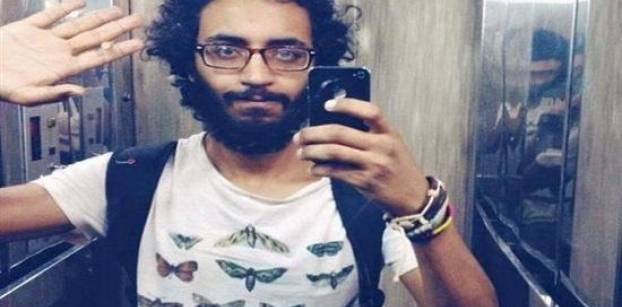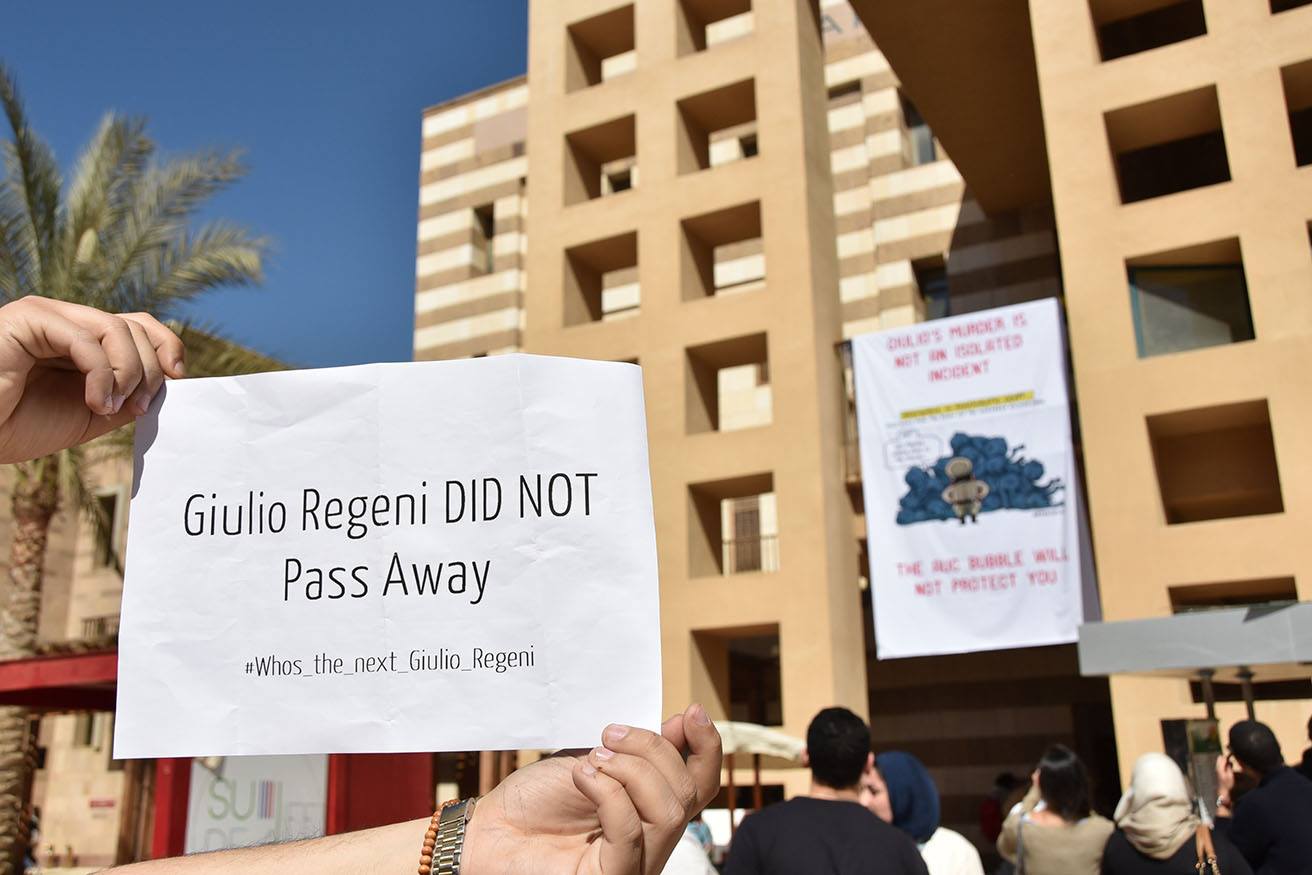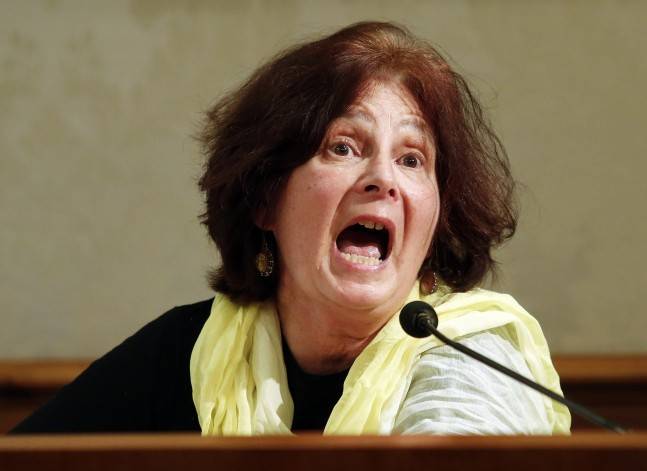Latest NEWS
- Aswat Masriya, the last word
- Roundup of Egypt's press headlines on March 15, 2017
- Roundup of Egypt's press headlines on March 14, 2017
- Former Egyptian President Hosni Mubarak to be released: lawyer
- Roundup of Egypt's press headlines on March 13, 2017
- Egypt's capital set to grow by half a million in 2017
- Egypt's wheat reserves to double with start of harvest -supply min
- Roundup of Egypt's press headlines on March 12, 2017
Activists reiterate concern over 'enforced disappearance', interior ministry denies
Photo used on social media by friends of Moustafa Massouny, who went missing in 2015. His friends launched an online campaign under the slogan "Where is Massouny?"
CAIRO, May 17 (Aswat Masriya) – As Egypt's rights defendants continue to voice concerns about purported enforced disappearance cases, pointing fingers of blame at the interior ministry, a ministry official said Tuesday such cases do not exist in the country.
After meeting with the parliament’s human rights committee, Assistant Interior Minister for Legal Affairs Magdy Abdel Mawla told journalists that the ministry will consider all the recommendations that were presented during the meeting as well as complaints previously made by the state-affiliated National Council for Human rights.
The United Nations defines "enforced disappearance" as a term that applies to "persons who are arrested, detained or abducted against their will or otherwise deprived of their liberty by officials in different branches or levels of government... followed by a refusal to disclose the fate or whereabouts of the persons concerned or a refusal to acknowledge the deprivation of their liberty, which places such persons outside the protection of the law."
Human rights defendants and organisations have often blamed the interior ministry for cases in which activists disappeared, with some of them later found in the interior ministry’s detention facilities. But the ministry has repeatedly denied the accusations.
In its monthly report published earlier this month, El Nadeem Centre for the Rehabilitation of Victims of Violence documented 87 cases of enforced disappearance in April alone.
A campaign launched by the Egyptian Commission for Rights and Freedoms, another civil society organisation, against enforced disappearances recorded 204 cases during the time between December 2015 and March 2016.
The campaign said then that the whereabouts of 103 of them have been revealed while the locations of the remaining 101 have yet to be known.
Last March, the European Parliament (EP) passed a non-binding resolution calling for the "suspension of any form of security cooperation and assistance with Egyptian authorities" for concern over the human rights situation in Egypt.
The EP said then that Giulio Regeni, a slain Italian researcher whose body was found bearing signs of torture in Egypt, is "not an isolated incident, but … it occurred within a context of torture, death in custody and enforced disappearances across Egypt in recent years.”
Regeni, a 28-year-old visiting scholar at the American University in Cairo, disappeared on Jan. 25, 2016, which marked the fifth anniversary of the 2011 Uprising that toppled former Egyptian president Hosni Mubarak. His body was found in February in a roadside ditch on the outskirts of Cairo.
The interior ministry has continuously denied reports claiming that Regeni was held in police custody before his body was found.
Among the most prominent cases of enforced disappearance in Egypt is that of 26-year-old video editor Moustafa Massouny, whose friends say was staying with them in a friend's apartment in downtown Cairo before he left to shop for food in June 2015 and never returned back. His whereabouts have been unknown since.
Social media users launched a campaign called "Where is Massouni?". An interior ministry official said previously, in a talk show on an Egyptian satellite TV channel, that he is not in custody.
Another case is that of a member of al-Dostour party Ashraf Shehata, who according to his wife Maha Mekkawy has “forcibly disappeared” on Jan. 13, 2014.
While the NHCR initially stated that Shehata has been detained in Zagazig prison, his wife later stated that prison administrators told her he was actually in Wadi al-Natroun prison.
The interior ministry later said that Shehata's name was confused with that of another man who had been sentenced to five years in prison. Shehata's exact whereabouts have yet to be known.















